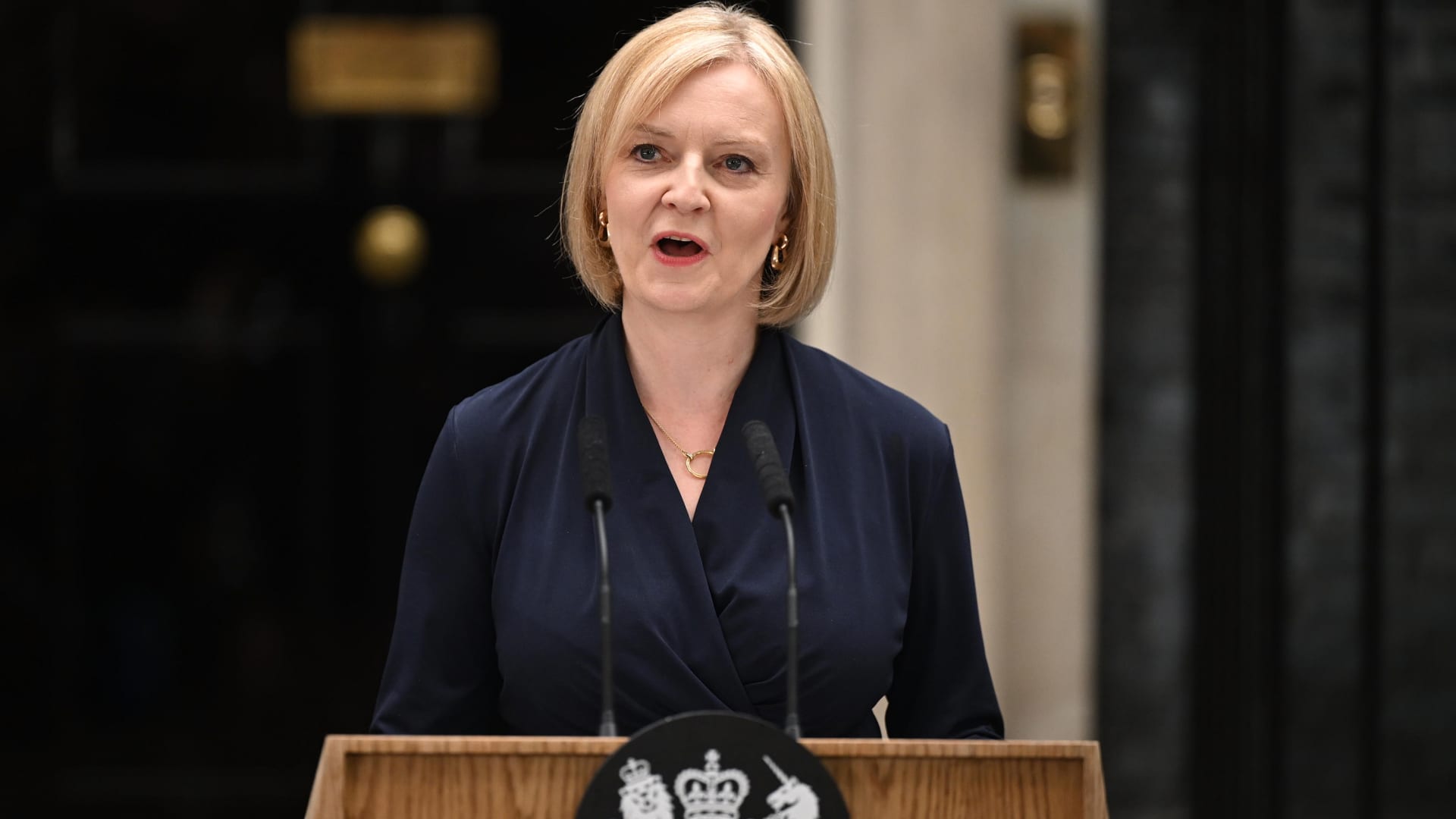‘We can ride out the storm’: Liz Truss promises immediate action on energy bills in first speech as UK PM

LONDON — Britain’s new prime minister, Liz Truss, made her first speech Tuesday, promising to tackle rising energy bills and the cost-of-living crisis in the next couple of days.
“I will deal with the energy crisis caused by Putin’s war,” Truss told reporters on the steps of 10 Downing Street.
“I will take action this week to deal with energy bills and to secure our future energy supply,” she said.
Outside her new prime ministerial home in London, Truss also said she had a “bold plan” to grow the economy through tax cuts and reform that would “boost business-led growth and investment.”
Improving health services was the third priority listed by the former foreign secretary. “I’m confident that together we can ride out the storm, we can re-build the economy and we can become the modern brilliant Britain that I know we can be,” Truss concluded.
Kwarteng becomes finance minister
Truss was officially appointed as prime minister of the U.K. on Tuesday morning following a meeting with Queen Elizabeth II at Balmoral Castle in Scotland.
Truss’ predecessor, Boris Johnson, officially resigned from the role on the same day.
Truss beat rival Rishi Sunak, the former finance minister, to win the Conservative Party leadership race, with results announced on Monday.
By Tuesday evening, Truss had already started assembling her Cabinet, appointing Kwasi Kwarteng as finance minister, James Cleverly as foreign minister and Suella Braverman as interior minister.
Solving the cost-of-living crisis
There have been rumors of a £100 billion ($113 billion) energy stimulus package to help British people to deal with the worsening cost-of-living crisis.
But there are questions as to how such a package will be funded.
“No new taxes” was a sentiment repeated time and time again by Truss during the Conservative leadership campaign.
Dr. Salomon Fiedler, economist at investment bank Berenberg, has suggested implementing a package “may not be so easy.”
“If incumbent utility companies freeze prices now but individually keep them above costs in the future, they could be outcompeted by new entrants in the future which do not have to recuperate current losses and thus could undercut them,” Fiedler said.
“This does not look like a time-consistent strategy,” he added.
“Another possibility would be to fund the current freeze with a levy on all energy consumers in the future. But this would in effect be a new tax, requiring Liz Truss to go back on one of her key promises,” Fiedler said.




